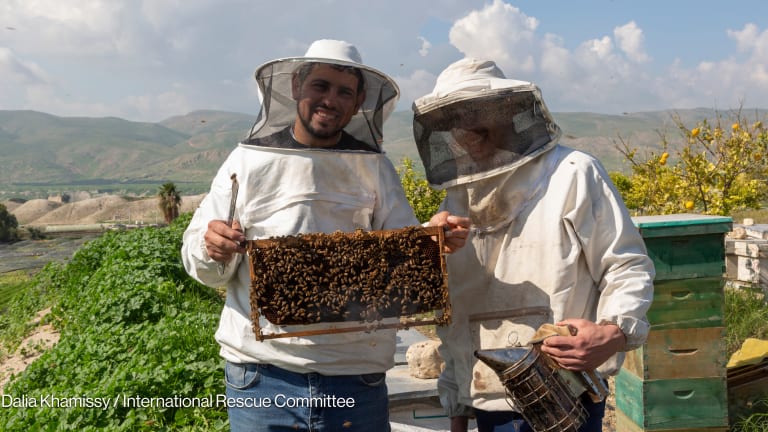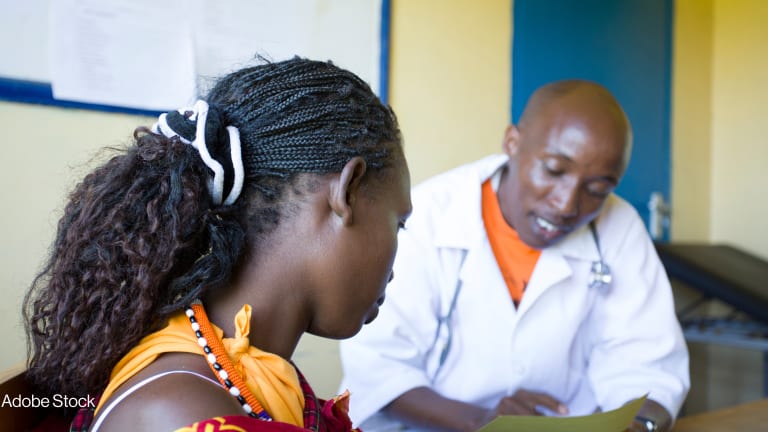
The good news is that majority of the world’s population is becoming safer, healthier and richer.
The bad news is that for those unlucky enough to live in the most fragile of environments, sickness, poverty and insecurity persist. According to the World Development Report on Conflict, the quarter of the world’s population living in fragile and conflict-affected situations are twice as likely to be undernourished and to see their children die before age 5 when compared to people in other developing countries. What’s more, poverty rates are 21 percent higher in countries that have recently experienced an episode of major violence. Even within countries we see huge regional disparities in economic growth and quality of life due to insecurity.
In fragile countries like Afghanistan, the Democratic Republic of the Congo, Somalia and Yemen addressing conflict and security is critical to stopping the cycle of violence, weak governance and extreme poverty. A recent Mercy Corps study found that if we significantly reduced violence in Nigeria’s Middle Belt, the average household would on average experience a 137 percent increase in income.
Peace — as in, the absence of chronic conflict in one’s normal life — is a key contributor to broader wellbeing. Any effort to improve economic or health outcomes that doesn’t address conflict will not be reaching its greatest impact. Mercy Corps’ experience in the world’s toughest places provides some insight into how we can do this.
For transformational change at scale, enhanced security policies are essential
Northern Uganda was afflicted with years of debilitating interethnic violence that undermined both social and economic progress. Our recent research in Karamoja found that the Moruitit Resolution, a policy instituted by the Ugandan government to deter cattle raiding, was a significant factor in improving people’s security and freedom of movement.
Moreover, as a result of this improved security, we saw significant decreases in hunger among the local population. The more we can influence local and national governments to institute policies that improve security, the more progress we can make in breaking the cycle of conflict and extreme poverty.
Invest in conflict management during humanitarian responses
We are currently seeing an unprecedented number of complex humanitarian crises, most of which are the result of conflict. Given porous borders and increased displacement, there is considerable risk that many crises may spill over into neighboring countries, exacerbating the pressures on an already stretched humanitarian system.
Syria is a case in point, with the spread of Islamic State group into Iraq, and fears the same will occur in Jordan, Turkey and Lebanon. To address this head on, we need to tackle conflict issues in these crises earlier.
For example, in Iraq in 2014 mediators affiliated with the Iraqi Center for Negotiation Skills and Conflict Management negotiated an agreement with the Provincial Councils of Najaf and Karbala to allow settlement of displaced people and improve humanitarian access. Local cease-fires negotiated for humanitarian purposes can simultaneously meet the goals of reducing conflict intensity and building trust between factions.
Regrettably, many donors begin to scale down conflict management programming when the crisis hits. We need to advocate for maintaining or increasing investment in these areas to stop the violence and reduce the risk of spillover.
Strengthen good governance. If we look at most of today’s complex crises, poor or weak governance is often the trigger. The Arab Spring was not the result of youth unemployment per se, but the fact that governments were not addressing youth grievances, and in many cases were exacerbating it.
This summer’s protests in Lebanon and Iraq are reminders of that. As Mercy Corps found in Afghanistan, Colombia and Somalia, it was corruption and injustice that pushed young people to engage in violence, not lack of jobs. To help move these countries beyond fragility, we need to address the root causes of violence related to governance — improving accountability, inclusiveness, transparency and basic services at the local, national and regional level.
As humanitarian actors think about how to make our greatest contribution in the future, we need to focus primarily on the most fragile places, as that’s where suffering is concentrated. While there are no simple solutions and fast fixes, ending the cycle of violence — coupled with improved governance and economic opportunity — is a critical component of lasting, positive change for the people who need it most.
Conflict in Context is a monthlong global conversation on conflict, transition and recovery hosted by Devex in partnership with Chemonics, Cordaid, Mercy Corps , OSCE and USAID. We’ll decode the challenges and highlight the opportunities countries face while in crisis and what the development community is doing to respond. Visit the campaign site and join the conversation using #ConflictinContext.








